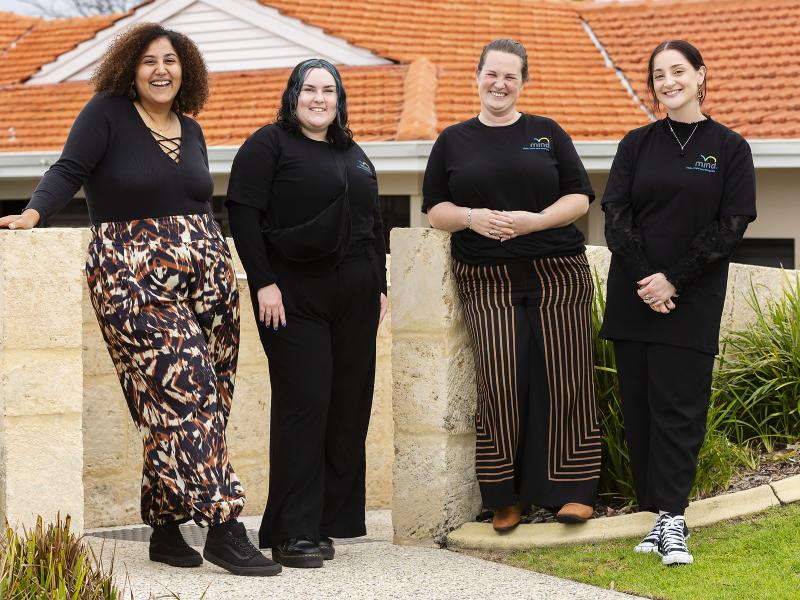The Bidi Wungen Kaat Centre in Perth has recently implemented a lifechanging suicide intervention group for their short stay prevention and recovery unit.
The service – also known as the St James Transitional Care Unit (TCU) – is a residential mental health service staffed by specialised mental health clinicians from East Metropolitan Health Service and Mind peer practitioners. Bidi Wungen Kaat developed the suicide intervention program with Consultant Psychiatrist Dr Madhavan Seshadri and Lead Peer Practitioner Susan Greenhatch, with the aim to provide a safe space to discuss what is often a taboo topic.
“Suicidality is such a common experience for people who use our service that we were very keen to create a peer based program to support people with this,” Ms Greenhatch said.
“People who use our services at St James regularly say how helpful it is to be around our peer practitioners, who have experienced similar mental health challenges including suicide, and to have that safe space in which to be able to open up and share their own experiences.”
The intervention group facilitates difficult and honest conversations about suicide, and aims to empower residents to develop an understanding of how to support their own mental health when it comes to suicide. It also offers the skills of how to engage in meaningful safety planning which participants can internalise and use in community.
The suicide intervention groups run over two weeks with residents encouraged to attend both sessions to get the full benefits.
Week one’s focus is ‘Breaking the Silence’, which supports residents to explore their individual experiences of suicide and the common myths, assumptions and stigma surrounding suicide that impacts them and can prevent help seeking.
The second session is called ‘Ways to Stay Alive’ and is a workshop where residents download the Safe Life Guide app and complete individual safety planning that they can continue to access in community.
The focus is on getting residents to develop a greater understanding of their suicidal behaviours, how to rate their distress and the interventions that may be beneficial at each stage.
“We want to empower residents to take the strategies they have learned at the service home with them – the safety plans and the sense of purpose - and internalise how they manage their suicidal ideation and behaviours,” Ms Greenhatch said.
While the program is still in its early stages and feedback is being sought, participants have so far enjoyed their time in the groups.
“The most useful part of the course was talking with one another about how suicide affects us in similar and different ways, helps more to understand others and not feel alone,” one participant said.
“It was most useful to create a digital safety plan and talk to others that understand,” another said.
